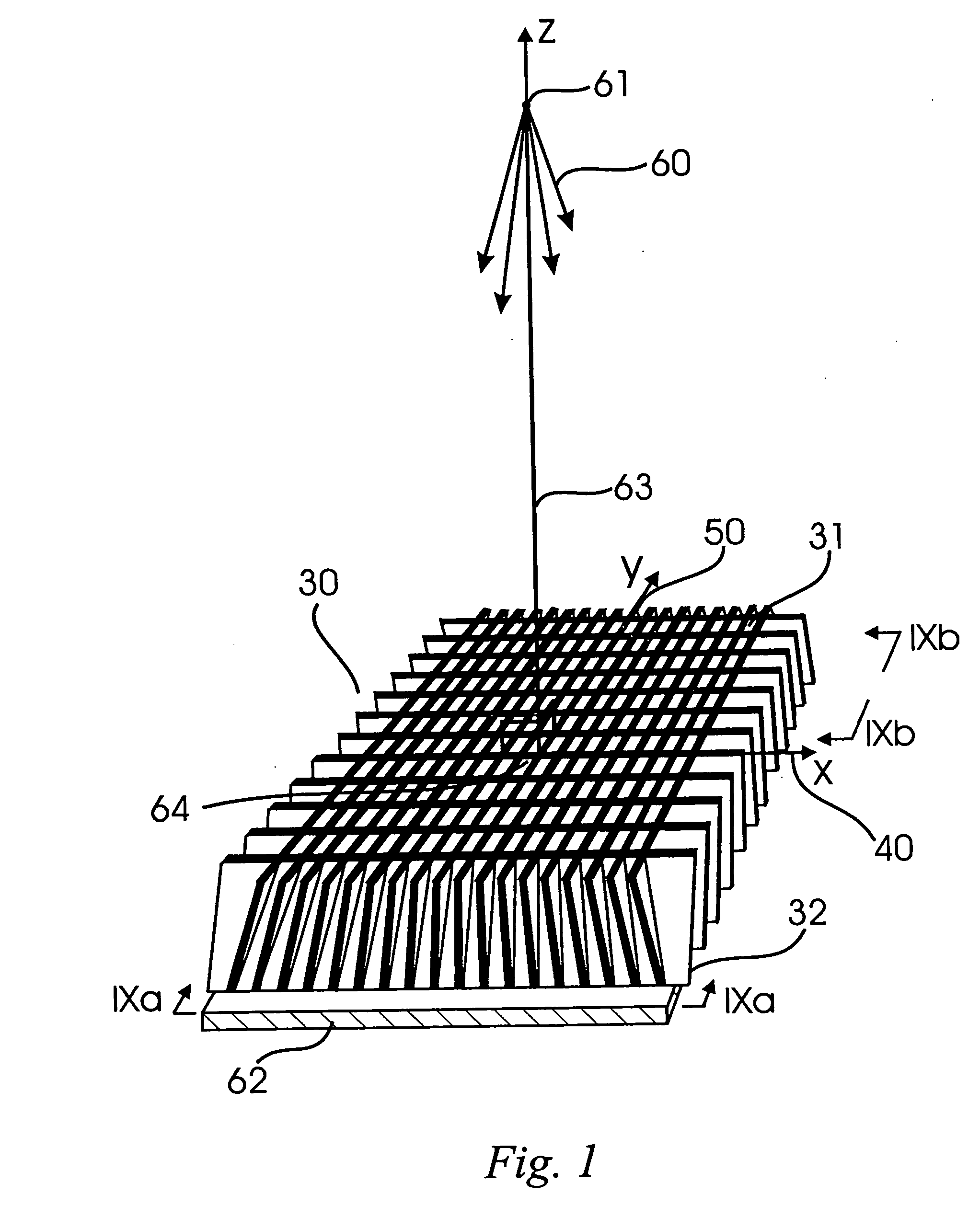Anti-scatter grids and collimator designs, and their motion, fabrication and assembly
a collimator and anti-scatter technology, applied in the direction of radiation/particle handling, nuclear engineering, diaphragm/collimeter handling, etc., can solve the problems of grid pattern and associated motion, requiring an increase in x-ray dose, and difficult interpretation, so as to reduce scattering of radiation, eliminate undesirable radiation detection, and improve image resolution
- Summary
- Abstract
- Description
- Claims
- Application Information
AI Technical Summary
Benefits of technology
Problems solved by technology
Method used
Image
Examples
Embodiment Construction
[0089] The present invention provides designs, methods and apparatuses for making large area, two-dimensional, high aspect ratio, grids, collimators, grid / scintillators, collimator / scintillators, x-ray filters and other such devices, with focused walls, defocused walls, variable focus walls, parallel walls and other such orientations, as well as similar designs, methods and apparatuses for all electromagnetic radiation applications. Referring now to the drawings, FIG. 1 shows a schematic of a section of an example of a two-dimensional grid or collimator 30 produced in accordance with an embodiment of a method of the present invention. The method of grid manufacture described here is different from the embodiment of the invention, as described in more detail in U.S. Pat. Nos. 5,949,850 and 6,252,938 referenced above, the entire contents of both being incorporated herein by reference
A. X-Ray Imaging
[0090] In FIG. 1, the x-ray propagates out of a point source 61 with a conical spread...
PUM
 Login to View More
Login to View More Abstract
Description
Claims
Application Information
 Login to View More
Login to View More - R&D
- Intellectual Property
- Life Sciences
- Materials
- Tech Scout
- Unparalleled Data Quality
- Higher Quality Content
- 60% Fewer Hallucinations
Browse by: Latest US Patents, China's latest patents, Technical Efficacy Thesaurus, Application Domain, Technology Topic, Popular Technical Reports.
© 2025 PatSnap. All rights reserved.Legal|Privacy policy|Modern Slavery Act Transparency Statement|Sitemap|About US| Contact US: help@patsnap.com



